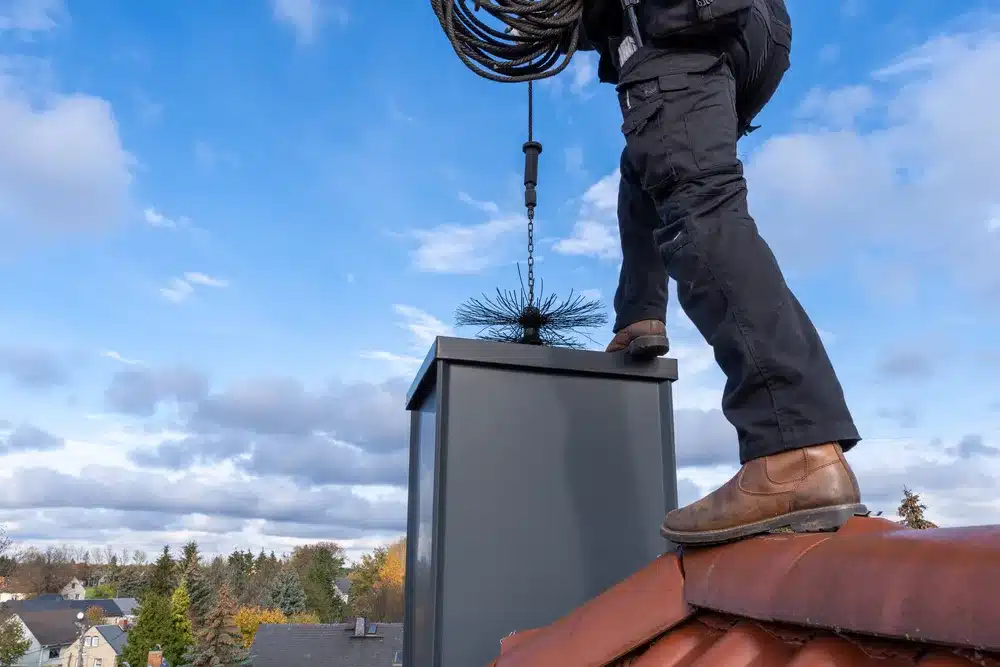Maintaining a clean and safe chimney is essential for the proper functioning of your fireplace or wood-burning stove. Regular chimney cleaning not only improves the efficiency of your heating system but also reduces the risk of chimney fires and carbon monoxide poisoning. However, the frequency of chimney cleaning can vary depending on several factors. At Town & Country Chimney Services, we provide our chimney cleaning services throughout Maryland and wanted to talk about how often you should have your chimney cleaned.

Usage Frequency
One of the primary factors determining the frequency of chimney cleaning is how often you use your fireplace or wood-burning stove. If you use it infrequently, such as for occasional ambiance during winter months, an annual cleaning may be sufficient. However, for those who use their chimney more frequently, such as daily or several times a week, it is recommended to have the chimney cleaned and inspected at least once every year or every six months to ensure the build-up of creosote and other debris is kept under control.
Type of Fuel and Chimney
The type of fuel you burn also affects the cleanliness of your chimney. Different fuels produce different byproducts and combustion residues. For instance, burning wood generates creosote, a highly flammable substance that can accumulate in the chimney lining over time. Therefore, chimneys serving wood-burning appliances typically require more frequent cleaning compared to those used for other fuels like gas or oil. Additionally, the design and construction of your chimney system can influence how often it needs cleaning. Older chimneys or those with narrow flues may require more frequent attention.
Creosote Build-Up
Creosote is a tar-like substance that forms when wood burns incompletely. It accumulates inside the chimney lining and poses a significant fire hazard. The level of creosote build-up can vary depending on burning practices, quality of wood, and chimney conditions. To determine if your chimney needs cleaning, you can visually inspect the flue for creosote deposits. If you notice a layer of 1/8 inch or thicker, it’s time to schedule a professional cleaning.
Professional Inspection and Cleaning
While visual inspections can provide some indication of chimney cleanliness, a professional inspection and cleaning are essential to ensure thorough maintenance. Certified chimney sweeps have the expertise and tools to assess the condition of your chimney, identify potential issues, and remove any accumulated debris. Professional chimney sweeps can also detect hidden problems like cracks or blockages that may compromise the safety of your chimney.
The Environment Plays a Role
Environmental factors can impact how often you need to clean your chimney. For example, if you live in an area with high levels of air pollution or experience severe weather conditions, such as heavy storms, strong winds, or earthquakes, your chimney may be exposed to increased debris, soot, or damage. In such cases, more frequent cleaning and inspections are advisable to keep your chimney in optimal condition.
Contact a Professional Maryland Chimney Sweep
As a general guideline, it is recommended to have your chimney cleaned and inspected at least once a year, but more frequent cleanings may be necessary depending on your specific circumstances. Consulting with a professional chimney sweep is the best way to determine the appropriate cleaning schedule for your chimney, ensuring its safe and efficient operation for years to come. You can get in contact with us at Town & Country via our website, or feel free to give us a call at (410-995-6700).
